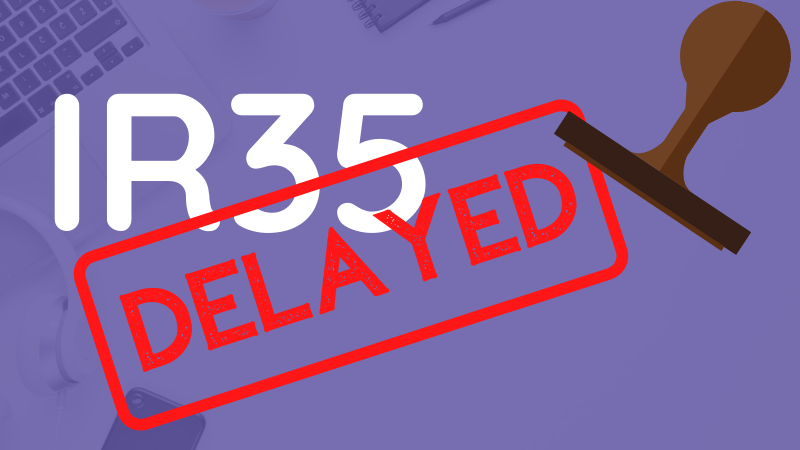
This is a guest blog by Umbrella Company Parasol.
In March, with the UK on the brink of lockdown and the economic fallout of Coronavirus beginning to show, the government made the decision to defer the introduction of changes to the off-payroll working rules by one year. It was a move that was roundly welcomed by recruitment agencies and the businesses that benefit from the flexibility and skills provided by contractors.
Many felt that burdening these parties with the responsibility for assessing IR35 status at a time when businesses were fighting to keep their doors open would have been unwise. The government clearly agreed, and so IR35 reform will not be introduced in the private sector until 6 April 2021, at which point medium and large businesses will begin administering the rules.
From this date, responsibilities for end hirers and recruitment agencies will change. Where an assignment is deemed 'inside' and the recruitment agency is responsible for making the payment to the contractor's personal service company, they will become the ‘deemed employer’ and become responsible for making employment tax and NI deductions, before making the net payment to the contractor.
Given it’s been over four months since the delay to the off-payroll tax changes was announced, we thought it would be useful to explore what has happened since, how contractors and businesses have reacted and explore some ways recruiters can get ready for next April.
Contractor hiring nosedives, but impact of delay difficult to gauge
While the news that reform had been deferred offered contractors hope at a desperate time, the devastating impact of Coronavirus means there has been little to celebrate.
According to data released by KPMG and staffing association, REC, contractor hiring experienced its worst month in March for 11 years. In the months that have followed, hiring activity across the board has continued to decline as the Coronavirus lockdown saw the need for new staff fall dramatically.
However, this unique scenario means it’s difficult to gauge how much of an impact the delay to IR35 reform has had on contractor hiring. In the next few months, and as businesses return to a new normal, we may be better placed to measure what effect the deferral has had on the demand for contractors if any at all.
Big businesses reverse contractor bans
More obvious is the reversal of contractor bans and blanket IR35 assessments, many of which occurred as a direct result of the deferral. Many companies have made a U-turn and will once again engage independent professionals. This includes the likes of Shell, Aviva, Deutsche Bank and Vodafone, each of whom have reportedly changed their position regarding the reform and have lifted their contractor bans, for the time being at least.
While the long-term consequences of these changes, when finally introduced, are uncertain, the fact that many high profile firms engaging thousands of contractors have reassessed their strategy is a welcome development, even if it is only for the short term.
What should businesses do now?
When taking into account the confusion and concern surrounding the off-payroll changes, the fact they have been pushed back by one year allows businesses extra time to prepare. This can only be a good thing, particularly when you consider the ongoing economic challenges.
So the question is, what should businesses do, whether recruitment firms or companies engaging contractors? While there are a number of ways businesses can approach the changes, including learning lessons from 2017’s public sector changes, generally speaking, this is what companies are encouraged to do:
- Prepare early, don’t wait until the reform lands on 6 April 2021
- Don’t panic, avoid contractor bans and blanket assessments
- Focus on accurate IR35 decisions, given status must be set with ‘reasonable care’
- Consider the benefits of engaging contractors deemed inside IR35 through an umbrella company



